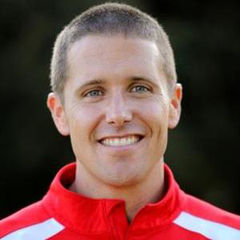Many of us in the fitness industry remember beginning our careers degreed, certified and passionate about helping others. We quickly found, however, that despite our academic prowess and desire to change lives, finding “others” who wanted our help was a bit more difficult than we thought.
Finding (and keeping!) clients with whom to share our knowledge and passion is one of the biggest challenges and greatest source of frustration in the fitness industry. This frustration, along with the accompanying financial hardship, causes many to leave the field altogether.
I’ve been there.
In my near 20 years as a health and fitness professional, I’ve created “earth-shattering” concepts for programs that no one attends. Multiple-session-per-week clients have taken a “break” for “financial reasons” (driving away in their Mercedes). I’ve had the bipolar schedule of one day being so busy I can’t eat lunch, and then the next day having just two clients—one at 5 a.m. and the other at 8 p.m. The rest of the day would be spent worrying about paying rent.
These challenges are faced by every health and fitness pro at some point in his or her career. Answering these challenges requires both long- and short-term strategies.
Creating a long-term “machine” for generating clients involves building trust, value, recognition and “authority” status within your community. Involvement and interaction with community organizations, activities and other platforms is the foundation of all of the above. However, while creating a long-term machine with your service and reputation is the key to attaining and retaining a near limitless clientele, many pros find themselves in a situation where they need clients NOW. That’s when short-term strategies are needed.
When I was a struggling trainer, I quickly discovered three quick and simple short-term strategies for getting new clients within one week’s time. When combined with a long-term focus on service and reputation, these three short-term strategies allowed me to not only attain clients quickly, but keep them! While I do not currently train individual clients as much as I once did, my “newest” client has been with me for six years, and my most senior client has been with me for more than 17 years!
Strategy 1: The Invite
If you’re providing a high level of service, your clients should want to see you succeed. After all, you are changing their lives! Asking clients to evangelize about your services and providing business cards for them to pass on to their friends is an effective way to get new clients. However, I have found this approach to be a bit too “passive” when you have a real need to generate clients.
Instead, have a “buddy” day where you give your clients a gift certificate to bring a friend (or friends) to their next workout. When friends joins in, be on your “A” game. Don’t just “kick their butt”—show you’re there to help. Spend some extra time with them. Prove your value and be relevant to their specific needs. Is she a runner? Highlight how a specific exercise can help her prevent a significant running injury. Is he a golfer? Mention a limitation he has that’s affecting his game.
Send your clients’ buddies home with two exercises to help them. These “buddies” became clients of mine more than 80% of the time.
Strategy 2: The Social Event
While we can look great on paper (degrees, certifications, etc.) nothing beats meeting potential clients face to face. Whenever possible, attend social events held or attended by current clients. Even joining a client and his or her non-training spouse for dinner moves that spouse one step closer to becoming a client.
Social connection is the most powerful tool is attaining new clients. A friend or relative’s endorsement often holds more weight than any degree or certification. When a current client introduces us in a social situation to a potential client, it’s an immediate and powerful endorsement of our services.
Additionally, a more relaxed social environment allows us to show our real-world personality and connect on a more human level. Potential clients are often intimidated by “perfect” fitness professionals who appear to eat nothing but kale and spend their free time doing shirtless push-ups in the mirror. Listening and having a casual conversation with a potential client while eating, drinking and being merry can show that you are a real human.
Try not to put the “hard sell” on them, or make the conversation about the specifics of “attacking their trouble areas.” Never trash another professional or program. If they ask about your business, quickly communicate how you are different than others in a way that is relevant to them. They’ve heard “I have a degree and I get results” a million times before. What does that mean to them and their specific needs?
Ideally, you just have a human conversation and you really listen. Don’t be a “trainer.” Be a person. Exchange cards and follow up a few days later with a resource you think they might find valuable based on your conversation. This may be a link to a recommended book or a blog you’ve created (better), for example, and mention that you’d love to have them come in to chat about creating a program. Trust, value and authority—with these three things you’ve quickly acquired a new client for life.
Strategy 3: The Alumni
Quite often through the lifetime of a client, a host of actual and embellished life disruptions can get in the way of his or her continued work with you. Regardless of whether or not these disruptions are legitimate or merely excuses, often times these clients regret the departure. They can’t deny their lives were better while working with you.
Undoubtedly, your absence has resulted in weight gain, a decrease in energy, guilt and all the other reasons they came to see you in the first place. A phone call or email may be just what they need to provide the motivation to start training again.
Again, this contact shouldn’t be a hard sell—just a check-in to see how they are doing. Consider any solutions you may now have to overcome their previous struggles. Do they need to save money? You now have a small group at 10 a.m. that is less than half the cost of your personal-training sessions Do they have a new job? You have before- and after-work classes and free passes to offer them. Merely consider how you could become relevant in their lives once again.
If you’re looking to help more people immediately, try these three strategies today. Increase your opportunities to share your knowledge and passion to help others live extraordinary while you do the same.
Boost your career with ACE’s Professional Resources.




 by
by 







 by
by